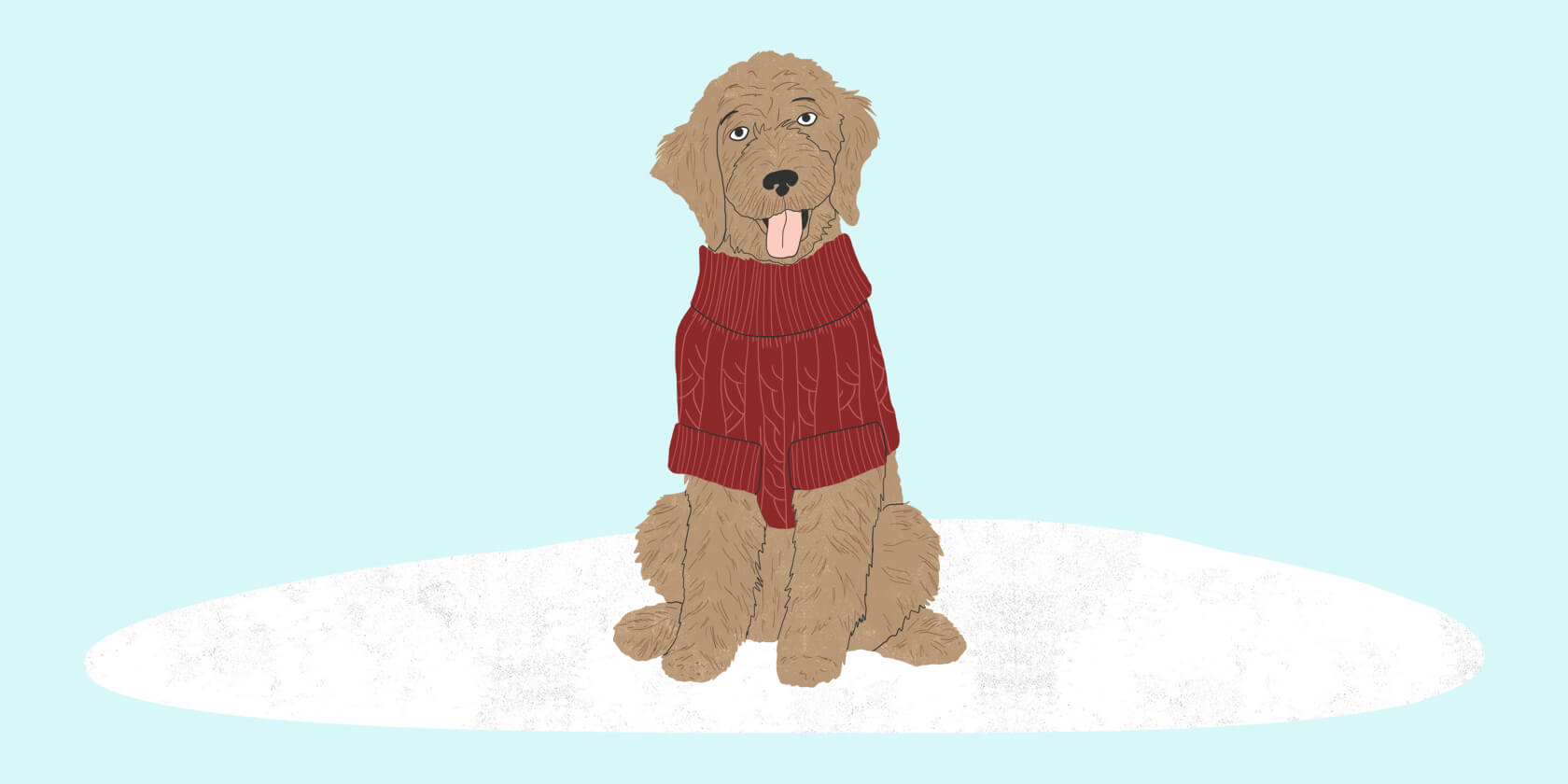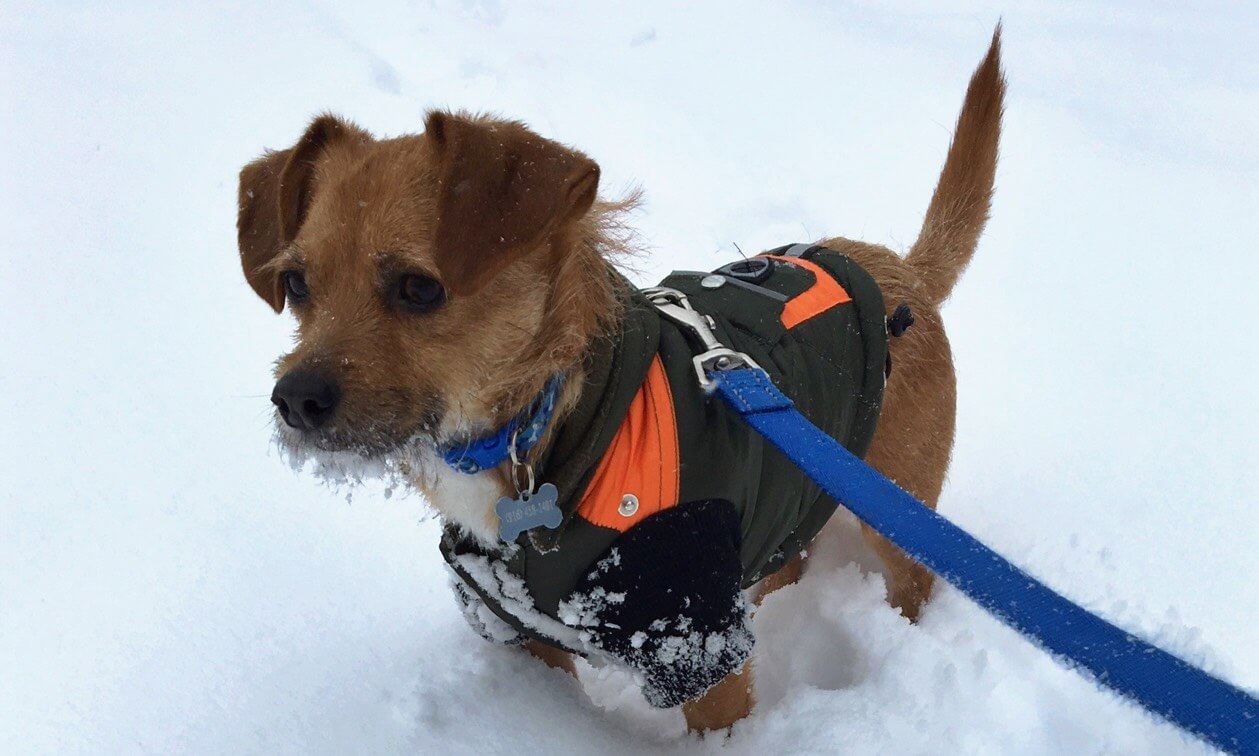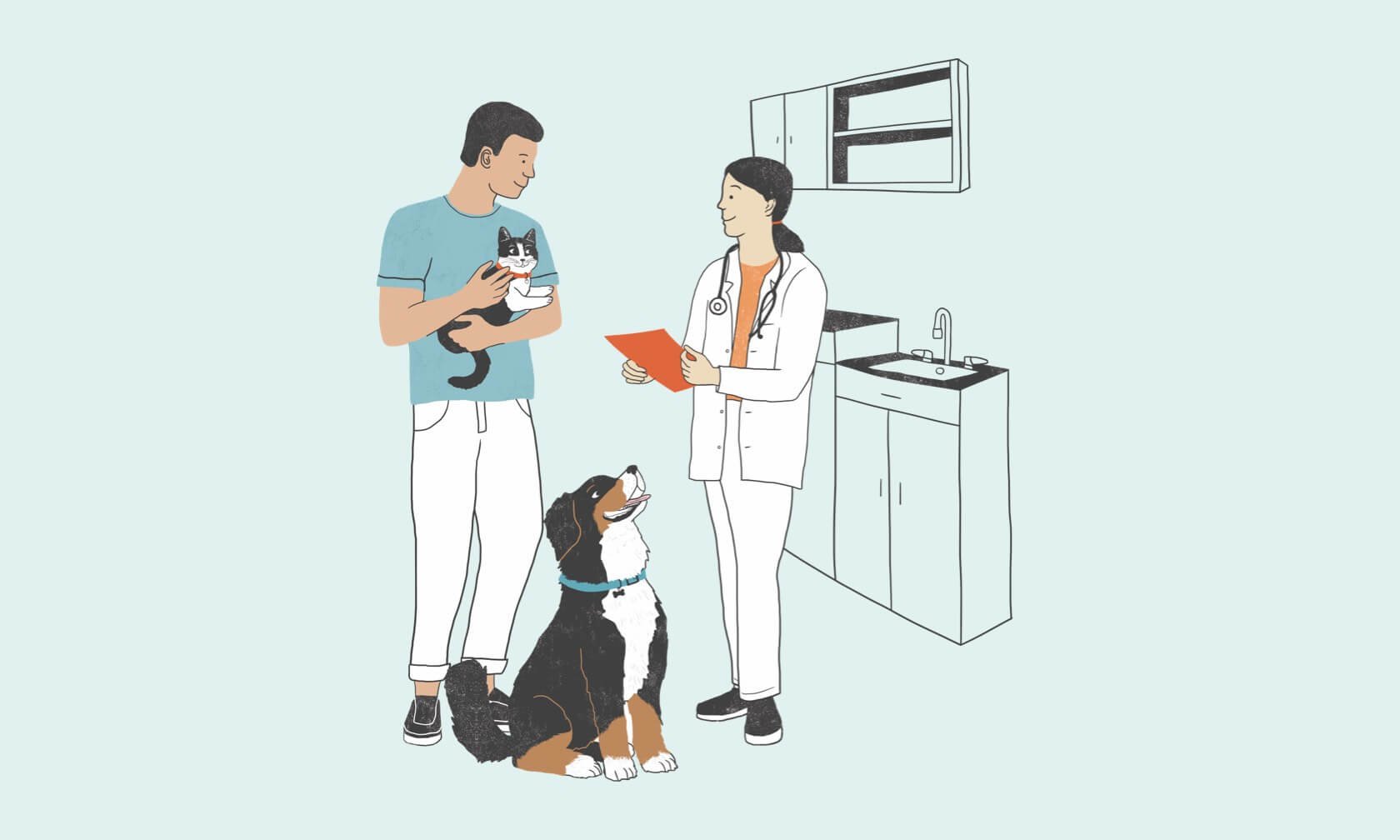As the seasons change, so do the hazards our dogs and cats are exposed to. With winter on the horizon, it’s time to take stock of the ways you can keep your pets safe from illness and injury. It may seem daunting, but with a little planning and preparation, you and your furry friends can enjoy the wintery outdoors without incident.

Consider Your Pet’s Breed and Age
Some dog breeds feel right at home in a winter wonderland if they have a thick, insulated double coat, such as Huskies or Samoyeds. For breeds without that extra fluff, like Great Danes, Chihuahuas, or Greyhounds, be sure they aren't exposed to cold or wet weather without some protection. Keep an eye on your pets indoors, too, as some dogs and cats without thick fur can get chilly even while inside. It's best to keep an outdoor cat safely indoors anytime the weather is cold and/or wet.
Senior pets have a harder time regulating body temperature due to slower circulation. Cold or wet weather can make arthritic joints stiff and painful. Orthopedic pet beds are a great way to alleviate pressure on sore joints, and placing rugs on wood or laminate flooring can help prevent slips and falls inside. Speak with your veterinarian about any needed pain treatment to help your older pet through the colder months.
Winter Walks With Your Pets
Take note of the temperature when you head out for a walk or outdoor play with your pet. If it’s too cold for you, it’s too cold for them. Just like us, our pets can suffer from hypothermia and frostbite. And it doesn’t have to be freezing or below-freezing temperatures for cold-related illness or injury. If you see any signs of hypothermia or frostbite in your pet, contact a veterinarian for immediate advice and treatment. Get them somewhere warm, thoroughly dry them off, and wrap them in slightly warmed towels or blankets. Avoid reaching for a hot water bottle or heating pad, as these can get too hot for pets and cause burns.
Invest in a pet rain jacket with a warm insulating layer and waterproof shell if you’re taking your pet for a walk in the rain and cold. If your pet doesn’t enjoy wearing clothing, keep your walk short and make sure to dry them off thoroughly when you return inside.
Be aware of surrounding hazards, such as streams or rivers, and especially frozen lakes and ponds. You don’t want your dog to fall through broken ice and risk falling through yourself.
Keep Your Pet Hydrated
If your pet is spending time outdoors in cold weather, it's critical to make sure they're staying hydrated — and eating snow isn't going to cut it. Monitor their water bowl and make sure to keep it filled and easily accessible. If you're going on a long walk or hike, it's always a good idea to bring fresh water along.
Check Under the Hood of Your Car
When the weather gets chilly, outdoor cats (and other animals) will seek out warm resting places — they’ll often sneak under a car hood next to a still-warm engine. This can result in burns if the engine is too hot or much worse if the car is turned on. Always knock on your car hood and honk your horn to scare away any hiding or sleeping animals before starting your vehicle.
Winter Chemical Hazards for Pets
Wintertime means certain chemical hazards are more widespread, such as antifreeze, deicers, and rodent poison.
Deicers
Ice melters can cause irritation and chemical burns on paw pads and are toxic if ingested off the ground or when your pet licks their feet. Training your pet to wear booties protects against paw pad burns from deicers and provides firmer footing on icy sidewalks. If your dog just isn’t comfortable wearing booties, use a paw pad balm to create a protective barrier and keep their paws from collecting ice and snow between their toes. And be sure to check their paws and wipe them off thoroughly after being outside.
If you're looking for a safer ice melter to use on your sidewalk or driveway, look for deicer products made specifically for homes with pets. These are safer for pets, although they can still cause digestive upset if ingested in large quantities.
Antifreeze
Most antifreeze contains the chemical compound ethylene glycol, which will create mineral crystals that lead to kidney failure when metabolized by the liver. There are a few things you can do to protect your pets from antifreeze:
- Keep antifreeze and other automotive chemicals in a closed and ideally locked cabinet or up high and out of reach.
- If you notice an antifreeze leak or spill, clean it up quickly and thoroughly.
- If you believe your pet has gotten into antifreeze, take them to a veterinarian immediately.
Rodenticide
Rodent poison and traps can be dangerous for your cat or dog. With the colder weather, these critters seek warmth indoors, so more people are using poisons around their homes and businesses.
Pets might eat the bait before any rats or mice do. If you use rodenticide, place any rodent bait well out of reach from your pets and store any unused product safely. Ask neighbors or your landlord to avoid leaving poisons in the area, or at least give you a heads up when they plan to set bait so you can secure your pet.
They can also suffer rodenticide poisoning if they eat the poisoned rodents themselves.
If you think your pet has ingested these, or any other chemicals or poisons, contact Animal Poison Control and a veterinarian right away. If possible, find out what type of rodenticide and its ingredients to help them better treat your pet.
ZPC-00957R2



